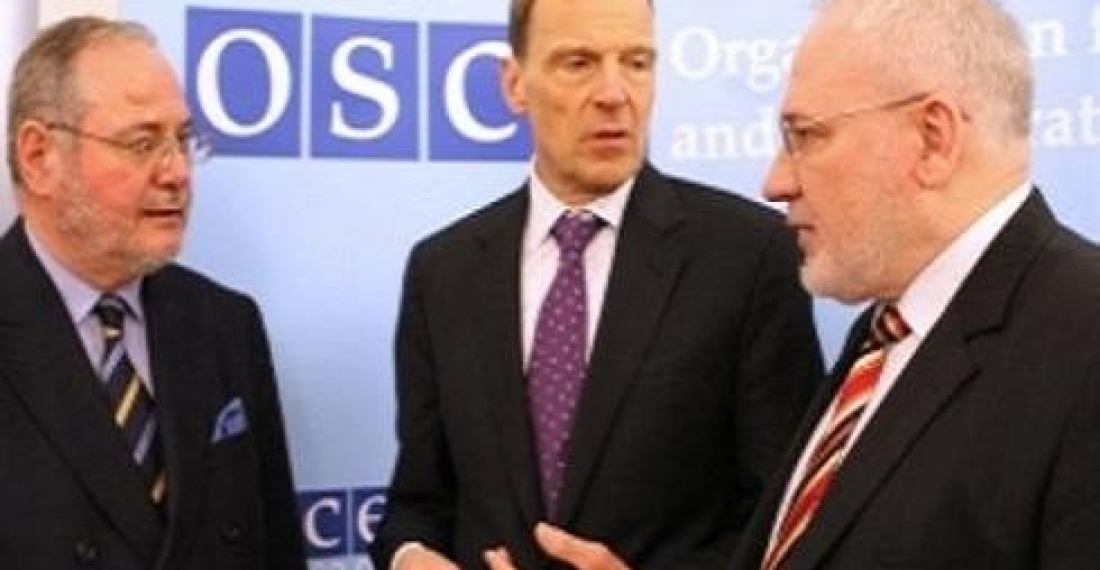The Co-Chairs of the OSCE Minsk Group met on September 26 with the Foreign Minister of Armenia, Edward Nalbandian, and on September 27 with the Foreign Minister of Azerbaijan, Elmar Mammadyarov. The meetings took place in New York on the margins of the United Nations General Assembly session.
As reported in commonspace.eu earlier US Secretary State Hilary Clinton and Russian Foreign Minister Sergei Lavrov had earlier this month discussed the possibility of a meeting between Armenia and Azerbaijan in the Minsk format, with the possible participation of the foreign ministers of the three co-chair countries, even though no breakthrough was envisaged. Even doing "a Minsk" however has become impossible in the current situation and the co-Chair had to be content with seperate bilateral meetings with Mammadyarov and Nalbandian
An OSCE statement said that "In their separate meetings with the Ministers, the Co-Chairs discussed recent developments in the region and continued to urge the parties to return to the substance of the Nagorno-Karabakh negotiations. The Co-Chairs expressed their concern over the lack of tangible progress in recent months. The Ministers reiterated their support for a peaceful solution, and their readiness to continue the negotiations."
Commonspace.eu political editor said in a comment that this is probably the worst point in the peace negotiations for more then a decade, and there is even the possibility that things will get worse before they get better with both sides considering initiatives that are like to make negotiations even more difficult. However pressure is building on the facilitators to explore new ways in which they can take the negotiations forward.
source: commonspace.eu
photo: The Co-Chairs of the OSCE Minsk Group, Ambassadors Robert Bradtke of the United States of America (centre), Igor Popov of the Russian Federation (left) , and Jacques Faure of France (right). (OSCE Archive picture)







